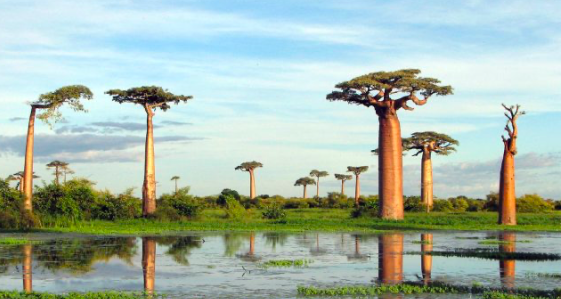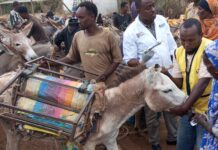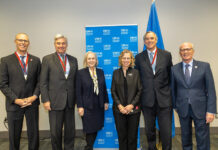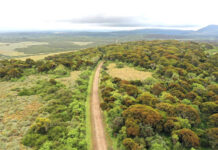By Mary Mwendwa
Morombe, Madagascar: Envirium Life Sciences announced its cooperation agreement with ASITY, a Madagascar based organization, a BirdLife partner. The partnership will see the preservation of biodiversity, the mangrove restoration in the Mangoky Ihotry, a wetland complex protected area, on the Southwest Coast of Madagascar.
This project reinforces Envirium’s and Asity Madagascar’s mission to preserve biodiversity while creating value for the local population.
For the first time, Malagasy nature conservation associations and the private sector will partner to enhance the preservation of a protected area in Madagascar. The agreement with ASITY Madagascar is an application of Envirium Life Sciences business model: improving livelihoods by creating a fair value chain for all partners while protecting the environment and its biodiversity.
“We are pleased to sign this partnership with ASITY Madagascar. It is the first of its kind in Madagascar. This private-public partnership will reinforce the actions we can undertake in the region. It should enable us to restore the natural resources of these marshy areas, which are home to rare and endemic Malagasy species”, explains Christian Van Osselaer, CEO of Envirium Life Sciences.
Located in the Province of Toliara, the Mangoky Ihotry area covers more than 400, 000 ha. Up until now, protected areas have always been financially supported by NGOs and public institutions.
Farmers from the Mangoky Ihotry region will be offered to develop pollen crops, providing them with a decent and sustainable income. After being trained by our teams, the local farmers will be able to produce the best quality of pollen.
Additionally, Envirium Life Sciences will grant an extra “environmental bonus” for each kilo of pollen exported for the biological control market. This sum will be fully allocated to the protection of the area. “This contribution will go directly to ASITY Madagascar, the manager of the protected area. This is part of Envirium’s mission. Our business model is simple: If you want people to preserve their own environment, you have to help them improve their income”, elaborates Van Osselaer.
The exceptional environment is made of dry semi-deciduous forests, Ihotry Lake (second largest in Madagascar), mangroves, and marine parks; this shelter welcomes hundreds of animals and bird species. Vony Raminoarisoa, Executive Director of ASITY Madagascar already anticipates the positive impact of this partnership.
“The environmental bonus will enable us to replant reeds and restore the mangrove. Today, five endemic bird species are classified as endangered, including Madagascar marsh-harrier and Madagascar grebe. In this case, planting reeds will enable to grow the presence of two species: a bird, the Madagascar grebe, and a fish, the Mozambique Tilapia. Implementing an inclusive management plan will be beneficial for all the stakeholders in our intervention area” Vony explains.
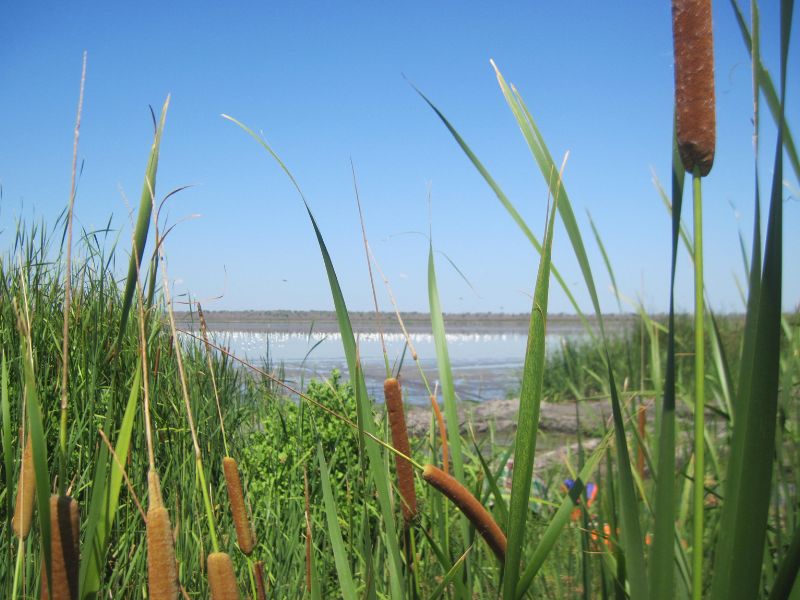
As the first to suffer from climate change, the local communities embraced the idea favorably. Gaëtan Etancelin, Global Group Sustainability Coordinator of Envirium Life Sciences, collects positive feedback: “During our on-site visits, the community associations, which collect pollen, have committed themselves to the conservation of several areas. They know that there is one key condition for Envirium to buy their pollen: the replanted mangroves and reeds cannot be cut. Thanks to the additional income, for the first time, people perceive conservation as an opportunity for their development rather than a burden.”
With this new partnership in Madagascar, Envirium Life Sciences extends its cooperation with nature reserves and national parks in Africa. In the Democratic Republic of Congo, COPAK Sarl, Envirium’s local subsidiary, partners with 15 0000 families in North Kivu and around the Garamba National Park in order to help them preserve biodiversity while creating a fair value in the supply chain of enzymes, vanilla, cocoa, chia seeds, and coffee.
Envirium is also part of Virunga Origins and Virunga Chocolate. These social companies produce unique Bean-to-Bar Chocolate, chia seeds, and coffee whose profits are entirely allocated to the Virunga National Park and the surrounding communities. All profits are reinvested into the conservation of the Park and the communities.

